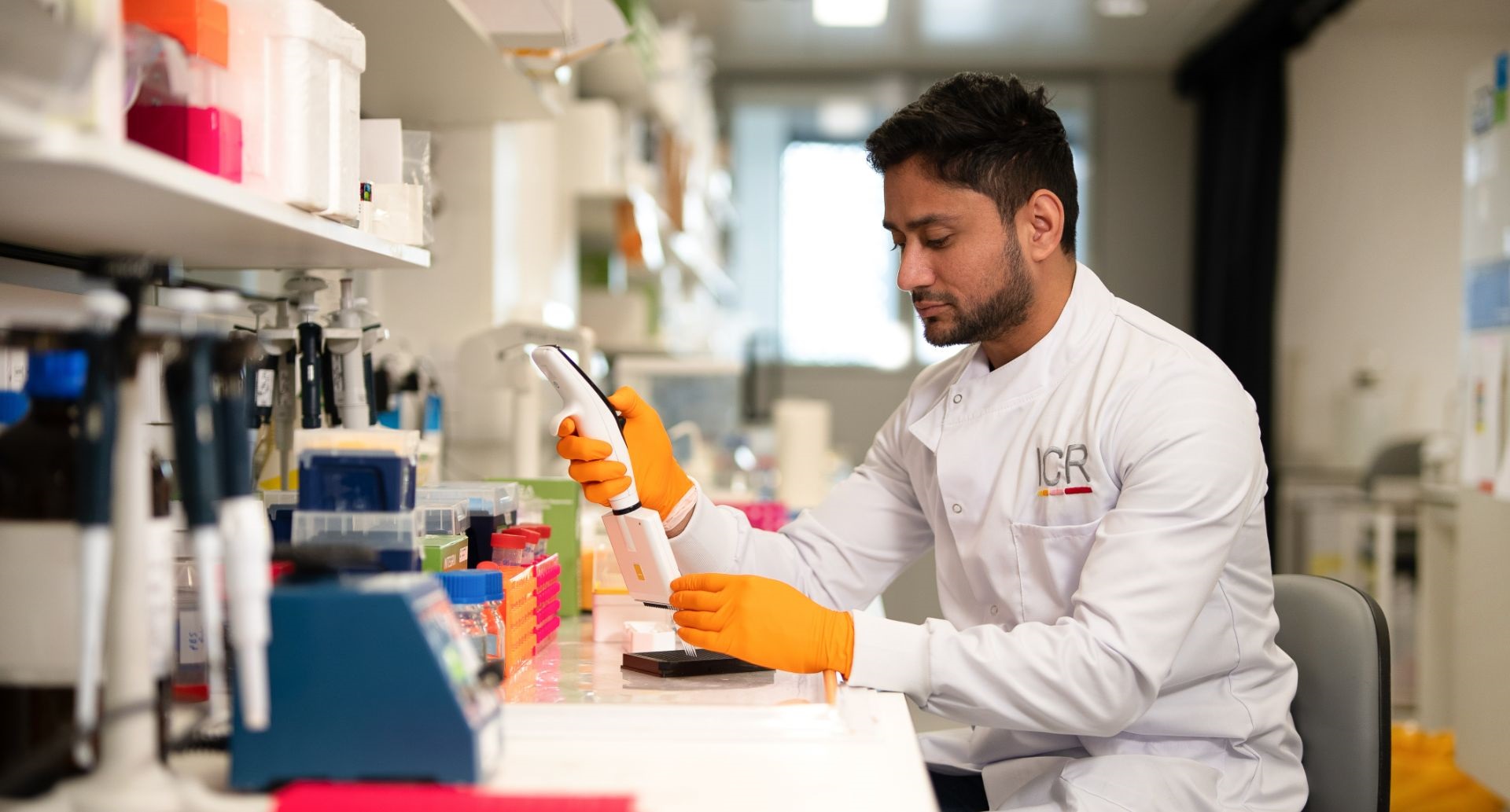
Opportunity: Novel method for sequencing the T-cell receptor from degraded RNA
Funding partner:
Cancer Research UK, ICR and UCL
Dr Annie Baker
Funding partner:
ICR lead scientists/inventors:
Cancer Research UK, ICR and UCL
Dr Annie Baker
Opportunity at a glance
- The Institute of Cancer Research, London, and Cancer Research Horizons are seeking a collaborative partner for the licensing and co-development of FUME TCRseq.
- Researchers from the Centre for Evolution and Cancer at The Institute of Cancer Research, London, have developed a new accurate, sensitive and low-cost tool for genomic analysis of the T-cell receptor.
- The method, called FUME-TCRseq, reveals the strength, breadth and clonal dynamics of the adaptive immune response to pathogens or cancer.
- The method is multiplex PCR-based and analyses degraded RNA from formalin-fixed paraffinembedded (FFPE) samples. It is also effective for TCR repertoire analysis of high quality RNA, such as that from blood samples or frozen tissue samples.
- It has great potential for commercial development, being very low cost compared to existing methods, quicker, able to detect more clonotypes, and able to analyse low-quality RNA samples.
- FUME-TCRseq will also unlock the analysis of archival FFPE tissue, facilitating longitudinal analysis of T-cell dynamics in clinical samples, which has particular relevance in tracking immune responses through disease course and treatment.
More about novel method for sequencing the T-cell receptor from degraded RNA
Genomic analysis of the T-cell receptor (TCR) reveals the strength, breadth and clonal dynamics of the adaptive immune response to pathogens or cancer. Studying the TCR gives crucial insights into disease and could uncover new therapies, and is a vital component of research in genomic and molecular biology laboratories worldwide.
The diversity of the TCR repertoire, however, means that sequencing is technically challenging, particularly for samples with low-quality, degraded nucleic acids. Current methods have significant weaknesses, including relatively long preparation times, high cost and high failure rate for poor quality samples.
Researchers from the Centre for Evolution and Cancer at The Institute of Cancer Research (ICR), in close collaboration with immunogenomics expert Professor Benny Chain at UCL, have developed a new alternative to currently available methods.
The method – FFPE-suitable Unique Molecular idEntifier-based TCRseq (FUMETCRseq) is multiplex PCR-based, and uses 38 primers against the TCR V genes.
Crucially, it incorporates unique molecular identifiers (UMIs) for the correction of amplification bias and sequencing errors. UMIs are essential for quantitative and robust analysis of TCR repertoire data, and are not included in many of the current TCRseq methods.
To demonstrate the utility of the methodology, the research team has performed spatially-resolved FUME-TCRseq of colorectal cancers using microdissected archival samples, revealing the shifting T-cell landscapes at the transition to an invasive phenotype, and between tumour subclones containing distinct driver alterations. FUMETCRseq detected more clonotypes than a commercial RNA-based alternative, with shorter library preparation time (one day) and significantly lower cost.
Furthermore, FUME-TCRseq proved effective at accurately measuring T cell repertoires with as little as 100ng RNA input. FUME-TCRseq requires no specialist equipment and is very low cost compared to existing methods, meaning that it will be accessible to most genomic and molecular biology laboratories.
The researchers anticipate that FUMETCRseq will unlock the analysis of highly degraded archival samples that have hitherto been inaccessible, including facilitating longitudinal analysis of T-cell dynamics in clinical samples.
This has particular relevance in tracking immune responses through disease course and treatment – and could reveal novel avenues for biomarker identification and drug development.
Commercial opportunity
- The research team is seeking to out-license this technology to a partner who can work with them on the development of FUMETCRseq.
- The technology may be of particular relevance to a company that offers research reagents and tools to the research community.
- A patent has been filed: GB2305655.9.
Key publications
Baker A, et al. FUME-TCRseq: Sensitive and accurate sequencing of the T-cell receptor from limited input of degraded RNA. bioRxiv 2023.04.24.538037.
Contact us
Contact:
Joo-Hee Sir PhD
Business Development Manager
Email. [email protected]